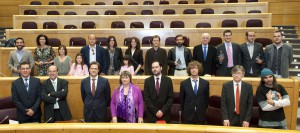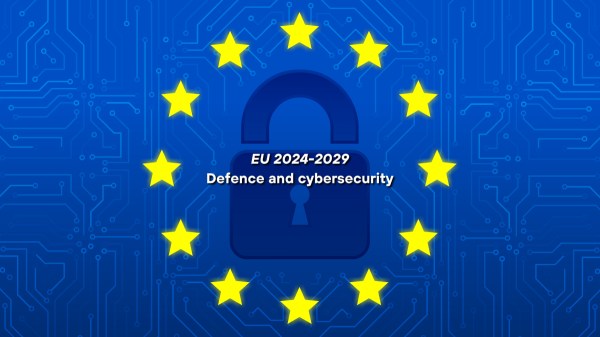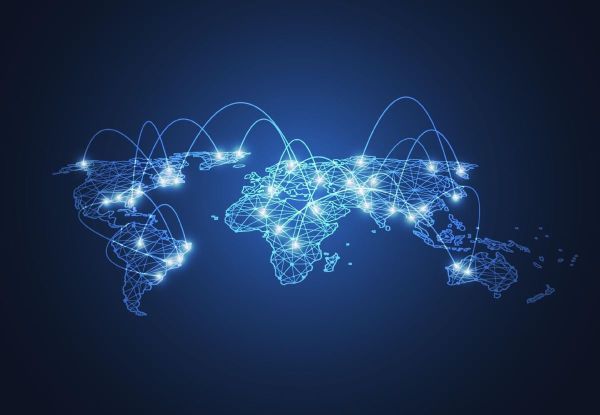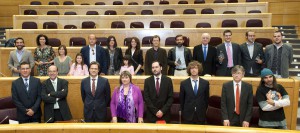
On May 17th the world celebrated the Internet Day. On this occasion, the Spanish Senate in Madrid organized a debate on the Internet and its governance to which I was honored to be invited (more information on the event can be found here.
Obviously, speaking about the Internet today implies unavoidably to talk about changes.
The Internet has without any doubt disrupted our lives like no other technology in the last decades and modified the way we work and live forever. It has brought new opportunities to people, businesses and administrations. It is a great success story.
However, with greatness comes responsibility and the Internet is facing three main challenges, as I explained in my presentation at the Spanish Senate and we also describe more in depth in Telefonica´s recently published Digital Manifesto.
- Accessibility: Today, there are 2.7 billion people connected to Internet, which means that 4.6 billion are still without access to the Internet. This represents 2/3 of the world population! We need to connect the unconnected in order to bring them the benefits of the Digital Economy.
- Open Internet: We need an open Internet without any dominance and user lock-in at any place in the value chain of this new ecosystem. This means that we should foster interoperability of services and make a portable digital life a reality. The Internet today is creating too much isolated solutions and non-interoperable services for voice, messaging but also for videoconferencing, social networks or eHealth. Open standards instead of proprietary systems would help many new services and companies to grow and to create open, vibrant ecosystems.
- Digital Confidence: It is crucial to create trust to use digital services. This will only happen if Internet users are sure that their privacy will be respected and if they feel safe and secure to use services. This is a challenging issue because the rules and views on privacy and data protection are not the same across the world, most Internet services and platforms have a global user base. The solutions need to include international policy cooperation, better transparency and control for users of digital services.
It is clear that solutions to most of these challenges will just be achieved if we follow a cooperative, multistakeholder approach. This is also what the global Internet conference NetMundial in Sao Paulo has recently concluded.
It is the best way to build a consensus between all involved stakeholder and governments and get solutions implemented fast and on a global basis.
Another interesting issue was raised by Chema Alonso, which highlighted the role of hackers for improving security on the Internet. While most people would think that hackers actually endanger Internet security, Chema explained the clear differences between a hacker and a cybercriminal. Hackers improve security because they are passionate about systems and are constantly investigating and analyzing the Internet and digital systems to make them better. He asked for more resources to be dedicated to hackers as their role is essential to get information about potential bugs of security in services and networks.
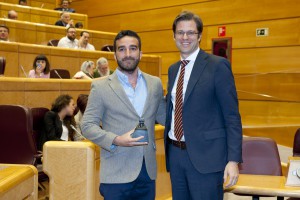
The other panelists also raised interesting views about the Internet today:
- Internet belongs to everybody: Jan Malinowski, from the Council of Europe, highlighted that Internet was a legacy made to Humanity, belonging to everybody and our main task and duty should be not to harm it
- Internet symbolizes the movement of changes: Francisco Polo, from Change.org, explained that the Internet is a key driver of social innovation, a great platform to allow people to be in contact with each other and to move things ahead in our societies.
- Internet should be kept as a continuous firework: with this metaphor, Andrea Becalli from ICANN explained that the Internet should be driven by three key characteristics: Internet should be open, beautiful and universal.
- Right policy approach for the Internet: Pablo Bello from AHCIET said that Internet is continuously evolving and changing, therefore policy makers should take a cautious approach and rather focus on forward-looking, long-term issues.
Let´s hope that we will have made some progress on these issues when we come together in 2015 to celebrate the Internet Day!
